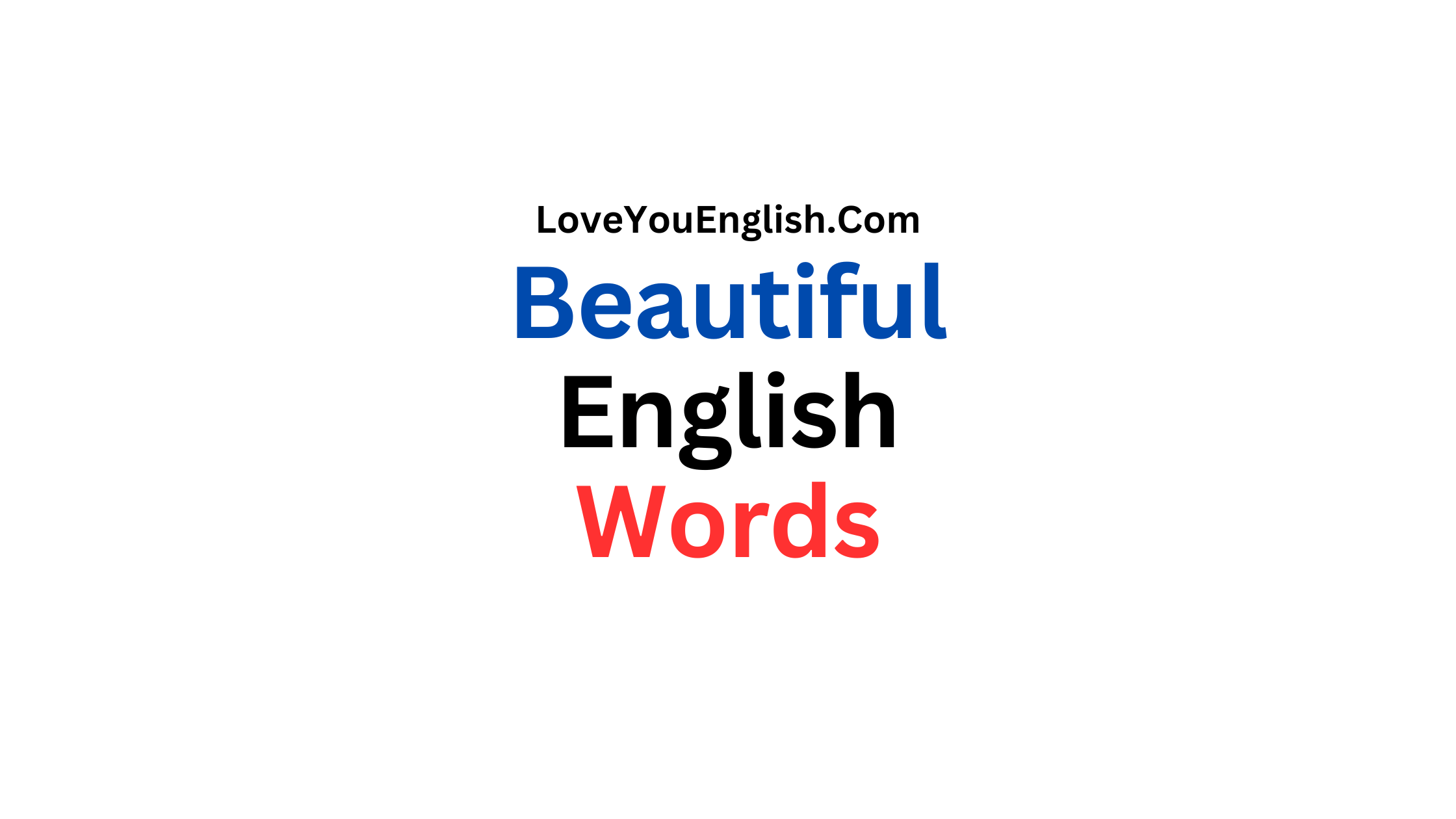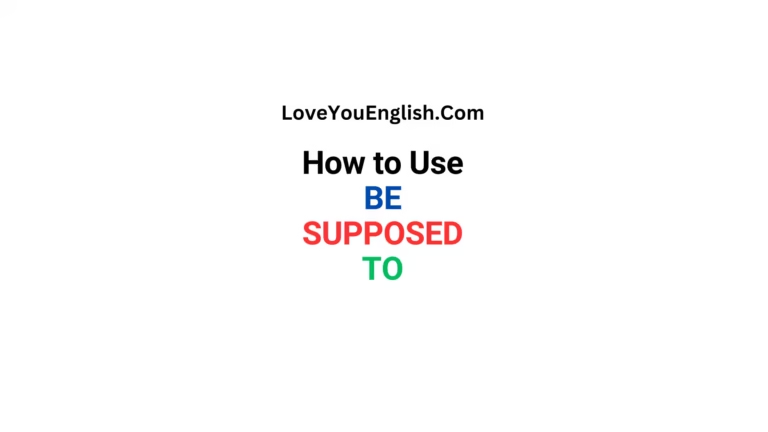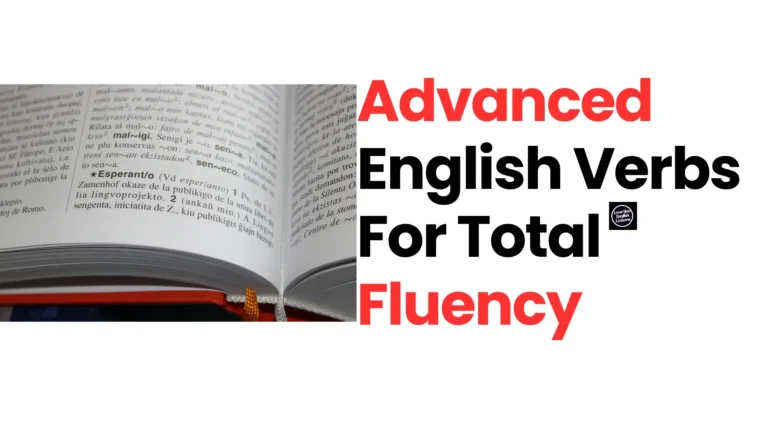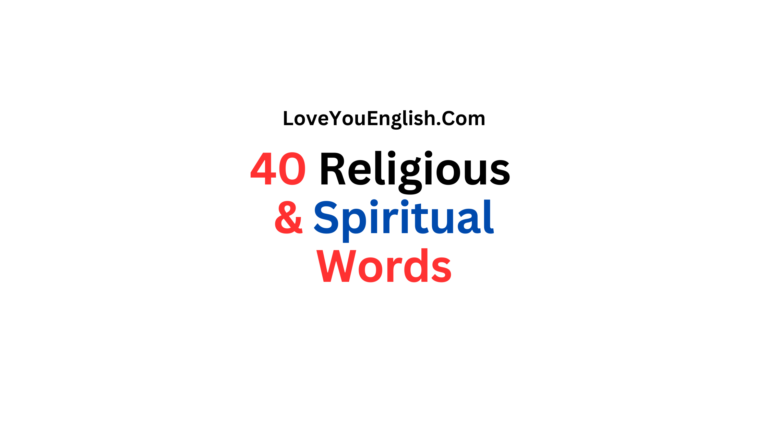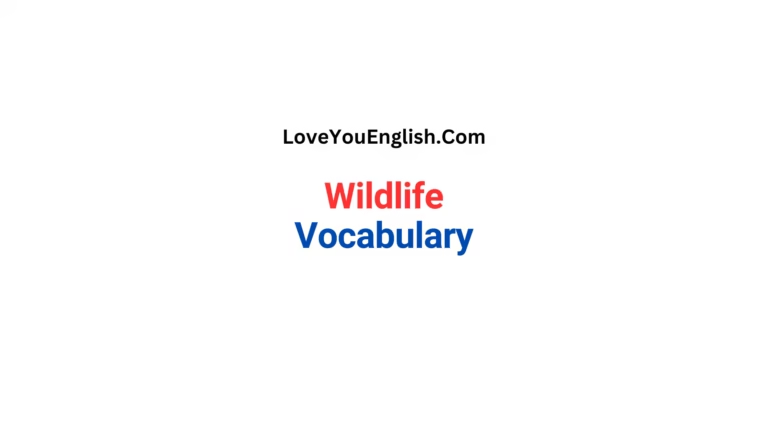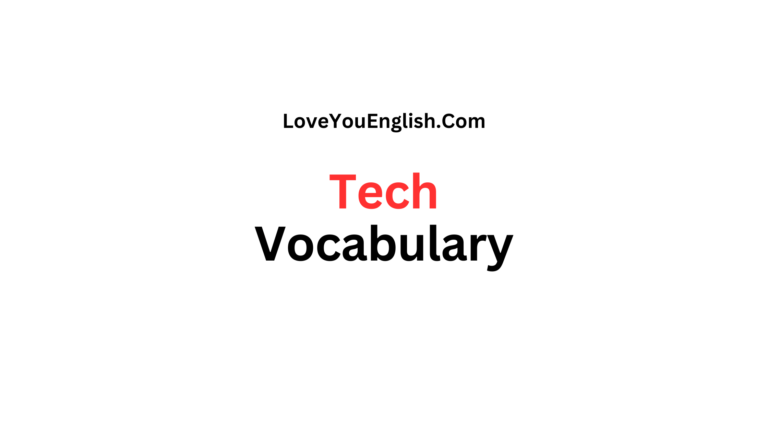Top 10 Most Beautiful English Words
I think language is super cool because it’s part of how people live and do stuff.
Some words in each language are extra pretty, both in how they sound and what they mean.
English has a bunch of beautiful words because it has a long history and lots of different things that have influenced it.
I’m going to talk about the 10 prettiest English words in this blog post, and we’ll look at what they mean, where they come from, and why we like them so much.
Language beauty is different for everyone, depending on their experiences, culture, and how they see things.
But there are some words that many people find beautiful.
I picked these because they sound nice, have deep meanings, and are important in different cultures.
Serendipity
Our journey begins with “serendipity,” a word that rolls off the tongue with a delightful cadence.
Defined as the occurrence of events by chance in a beneficial way, serendipity encapsulates a sense of wonder and unexpected joy.
The word has an intriguing origin, coined by Horace Walpole in 1754.
He derived it from the Persian fairy tale “The Three Princes of Serendip,” whose heroes were always making fortunate discoveries by accident. The tale’s title refers to Serendip, an old name for Sri Lanka.
What makes “serendipity” beautiful is not just its pleasing sound, but the concept it represents.
It speaks to the magical moments in life when things align perfectly without our conscious effort.
The word evokes a sense of optimism and openness to life’s surprises, encouraging us to appreciate the unexpected twists and turns of our journeys.
In literature and popular culture, serendipity has become a beloved concept, often used to describe chance meetings that lead to love or pivotal moments that change the course of one’s life.
Its beauty lies in its ability to capture complex emotions and experiences in a single, melodious word.
Ethereal
Next on our list is “ethereal,” a word that seems to float on air as it’s spoken.
Meaning extremely delicate, light, and seemingly too perfect for this world, ethereal conjures images of otherworldly beauty and transcendence.
The word comes from the Latin “aether,” which referred to the upper regions of space, and before that, from the Greek “aithein,” meaning “to burn” or “to shine.”
This etymology adds layers of meaning to the word, connecting it to concepts of heavenly realms and celestial light.
The beauty of “ethereal” lies in its ability to describe things that are almost beyond human comprehension or experience.
It’s often used to describe music that seems to transport the listener to another plane of existence, or natural phenomena like auroras that appear magical and otherworldly.
In art and literature, ethereal is a favorite word for describing scenes of sublime beauty or characters with an almost supernatural grace.
Mellifluous
“Mellifluous” is a word that lives up to its own meaning.
Defined as sweet or musical; pleasant to hear, it’s a term that sounds as smooth and flowing as the qualities it describes.
The word comes from the Latin “mellifluus,” which literally means “flowing with honey.”
What makes “mellifluous” particularly beautiful is its versatility.
While often used to describe voices or music, it can also be applied to writing styles, natural sounds like birdsong or flowing water, and even to personalities that exude a kind of verbal charm.
The word has a certain richness to it, evoking sensory experiences beyond just sound.
The association with honey brings to mind sweetness and golden hues, adding depth to its auditory pleasantness.
In poetry and prose, “mellifluous” is often employed to create an atmosphere of harmony and grace, enhancing the lyrical quality of the writing.
Ephemeral
“Ephemeral” captures a complex concept in a word that sounds as fleeting as its meaning.
Defined as lasting for a very short time, the word evokes a sense of transience and impermanence that is both beautiful and poignant.
Derived from the Greek “ephemeros,” meaning “lasting only one day,” ephemeral has evolved to describe anything short-lived or temporary.
Its beauty lies in its ability to encapsulate the bittersweet nature of fleeting moments and experiences.
In art and literature, “ephemeral” is often used to describe natural phenomena like cherry blossoms or sunsets, emphasizing their transient beauty.
It’s also applied to human experiences and emotions, reminding us of the precious nature of life’s fleeting moments.
The concept of ephemerality has gained particular relevance in our digital age, where information and trends can be incredibly short-lived.
This modern context adds another layer of meaning to an already rich and evocative word.
Luminous
“Luminous” is a word that seems to glow from within, much like the quality it describes.
Meaning full of or shedding light; bright or shining, it’s a word that immediately evokes images of radiance and clarity.
The word comes from the Latin “luminosus,” derived from “lumen,” meaning light.
This direct connection to light gives the word a sense of purity and brilliance that contributes to its beauty.
What makes “luminous” particularly appealing is its versatility.
While it can be used literally to describe sources of light or shining objects, it’s often employed metaphorically to describe intellects, personalities, or artistic works that seem to radiate a special quality or insight.
When spoken, “luminous” seems to linger in the air, much like the glow it describes.
In literature and poetry, “luminous” is frequently used to create vivid imagery, describing everything from celestial bodies to enlightened thoughts.
Its ability to bridge the physical and the metaphysical, describing both tangible light and abstract brilliance, makes it a particularly rich and beautiful word.
Cascade
“Cascade” is a word that seems to tumble off the tongue, mimicking the very action it describes.
Defined as a small waterfall or a process whereby something, typically information or knowledge, is successively passed on, the word has a dynamic quality that makes it inherently beautiful.
The word originates from the Italian “cascata,” meaning waterfall, which in turn comes from the Latin “cascare,” meaning to fall.
This etymology gives the word a sense of motion and natural beauty that enhances its appeal.
In literature and poetry, “cascade” is often used to create vivid imagery of natural scenes, but its versatility allows it to be applied to many contexts.
It can describe the flow of ideas, the structure of data, or even the way light falls, always carrying with it a sense of graceful, continuous motion.
The word also has positive connotations in many contexts, often associated with abundance and natural beauty.
This makes it a favorite in descriptive writing, where it can evoke powerful and pleasing mental images.
Surreptitious
“Surreptitious” might not be the first word that comes to mind when thinking of beauty, but its complexity and sound make it a worthy addition to our list.
Meaning kept secret, especially because it would not be approved of; obtained or done by stealth, it’s a word that intrigues and captivates.
The word comes from the Latin “surrepticius,” derived from “surripere,” meaning to snatch secretly or to steal.
This clandestine origin adds to the word’s mystique and appeal.
What makes “surreptitious” beautiful is its ability to pack so much meaning into a single word.
It doesn’t just mean secret or stealthy; it implies a whole narrative of concealment and perhaps even mischief or intrigue.
In literature, “surreptitious” is often used to create an atmosphere of mystery or to describe actions and characters involved in covert activities.
Its length and somewhat uncommon usage make it a word that draws attention, adding a layer of sophistication to any text in which it appears.
Eloquent
“Eloquent” is a word that lives up to its own meaning.
Defined as fluent or persuasive in speaking or writing; clearly expressing or indicating something, it’s a term that embodies the power and beauty of language itself.
The word comes from the Latin “eloqui,” meaning to speak out, which is derived from “ex” (out) and “loqui” (to speak). This etymology reflects the word’s association with expressive and impactful communication.
The beauty of “eloquent” lies in its ability to describe the pinnacle of verbal or written expression.
It suggests not just clarity, but a certain grace and persuasiveness that elevates language to an art form.
In literature and everyday use, “eloquent” is often employed as a high compliment, describing speakers, writers, or even moments that demonstrate exceptional expressive power.
It’s a word that celebrates the beauty and impact of well-crafted language, making it a fitting inclusion in a list of beautiful English words.
Effervescent
“Effervescent” is a word that seems to bubble with energy, much like its meaning.
Defined as vivacious and enthusiastic; giving off bubbles; bubbling, it’s a term that immediately evokes a sense of liveliness and joy.
The word comes from the Latin “effervescere,” meaning to boil up or to foam, which is derived from “ex” (out) and “fervere” (to boil). This origin gives the word a dynamic quality that contributes to its charm.
What makes “effervescent” particularly beautiful is its ability to describe both physical and metaphorical bubbling.
It can be used literally to describe carbonated drinks, but it’s often applied to personalities or atmospheres that exude excitement and vivacity.
This versatility allows the word to bridge the gap between the tangible and the abstract.
In literature and everyday speech, “effervescent” is often used to create a mood of happiness and energy.
It’s a word that can lift the tone of a sentence or description, infusing it with a sense of sparkle and life.
Its positive connotations make it a favorite for describing pleasant social atmospheres or charismatic individuals.
Quintessential
We conclude our list with “quintessential,” a word that in many ways represents the essence of linguistic beauty.
Defined as representing the most perfect or typical example of a quality or class, it’s a term that speaks to the heart of what makes something characteristic or definitive.
The word has a fascinating etymology, coming from the medieval Latin “quinta essentia,” or “fifth essence.”
This refers to the ancient and medieval belief in a fifth element, beyond earth, air, fire, and water, that was thought to be the substance of the heavenly bodies and latent in all things.
The beauty of “quintessential” lies in its ability to elevate the subject it describes.
By labeling something as quintessential, we’re not just saying it’s typical, but that it embodies the very best or most representative qualities of its class.
The word carries a sense of distillation, of capturing the absolute core of something.
Phonetically, “quintessential” is complex and satisfying.
In literature and critical writing, “quintessential” is often used to identify archetypal examples or to discuss the fundamental nature of things.
Its scholarly tone adds a layer of sophistication to any text, while its meaning allows for precise and powerful description.
Conclusion
Language is not just about being useful, it’s also about making us feel things, creating clear pictures in our minds, and explaining complicated ideas with just one word.
The ten words we’ve learned about – serendipity, ethereal, mellifluous, ephemeral, luminous, cascade, surreptitious, eloquent, effervescent, and quintessential – all show how powerful language can be in their own special way.
These words are not only beautiful because they sound nice, but also because they have deep meanings and make us imagine things.
They show how diverse English is, with its origins in Latin, Greek, and other languages, and how it changes and grows over time.
These words also remind us how fun language can be. In a world where we often use short forms and emojis to talk, taking the time to enjoy individual words can be a pleasant and rewarding experience.
More words to learn:
- English Vocabulary: 40 Nature and Environment-Related Words
- English Vocabulary: 40 Art and Culture-Related Words
- How to Talk About Social Media and the Internet in English
- 40 Words Related to Safety & Emergencies with Meanings
- 75 Common English Words Used in Daily Life

